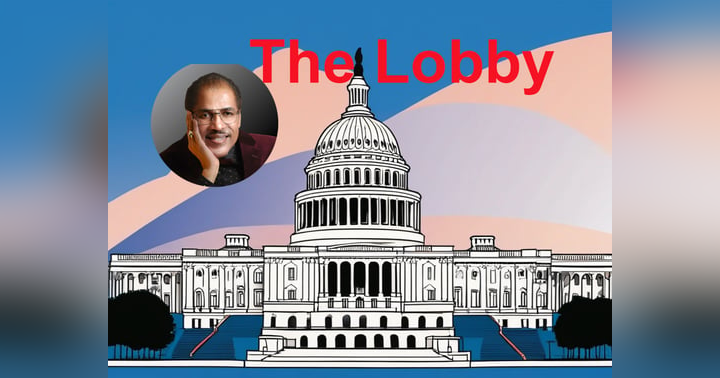Genocide and Ethnic Cleansing

Genocide and ethnic cleansing are atrocities that have plagued the Middle East for centuries, with conflicts often rooted in historical grievances, territorial disputes, religious differences, and struggles for power. In recent times, the region has witnessed a number of instances of genocide and ethnic cleansing, particularly in countries like Syria, Iraq, Yemen, and Myanmar. These conflicts have resulted in mass displacement, loss of life, and profound suffering for millions of people.
Syria has been at the forefront of these atrocities, with the ongoing civil war resulting in the displacement of over 11 million people and the deaths of hundreds of thousands. The conflict has seen the targeting of minority groups such as the Yazidis, Kurds, and Christians by extremist groups like ISIS. The Syrian government has also been accused of carrying out ethnic cleansing against opposition groups in areas like Aleppo and Homs.
In Iraq, the rise of ISIS in 2014 led to a campaign of violence and terror against religious minorities, particularly the Yazidis. Thousands of Yazidi men were killed, and women and girls were abducted and enslaved. Despite the defeat of ISIS, many Yazidis remain displaced and traumatised, with little prospect for return due to ongoing threats from extremist groups.
The conflict in Yemen has also resulted in widespread suffering, with both the Saudi-led coalition and Houthi rebels accused of carrying out atrocities against civilians. The blockade of Yemen by the coalition has resulted in widespread famine and disease, leading to the deaths of thousands of children.
In Myanmar, the Rohingya Muslim minority has faced persecution and violence at the hands of the military, resulting in a mass exodus of over 700,000 Rohingya to neighbouring Bangladesh. The UN has described the situation as a "textbook example of ethnic cleansing," with widespread reports of killings, sexual violence, and destruction of villages.
The root causes of these conflicts are complex and multifaceted, with historical grievances, political instability, and regional power struggles all playing a role. Sectarianism, tribalism, and religious extremism have also contributed to the rise of violence and discrimination against minority groups.
The international response to these atrocities has been mixed, with some countries providing humanitarian aid and support, while others have been complicit or actively involved in the conflict. The lack of a unified response from the international community has allowed these atrocities to continue unchecked, with little accountability for those responsible.
Addressing these conflicts and ending genocide and ethnic cleansing in the Middle East will require a coordinated effort from the international community, including diplomatic pressure, sanctions, and support for peacebuilding efforts. Advocacy and awareness-raising are also crucial in order to hold perpetrators accountable and ensure justice for victims.
While the challenges are immense, there are avenues for advocacy and support for affected communities. Human rights organisations, NGOs, and grassroots movements are working tirelessly to raise awareness, document atrocities, and provide support for victims. The voices of survivors and witnesses must be amplified in order to humanise the issue and put pressure on governments and international bodies to take action.
In conclusion, the instances of genocide and ethnic cleansing in the Middle East are a stark reminder of the atrocities that can occur when hatred, discrimination, and violence go unchecked. It is imperative that we continue to raise awareness, advocate for justice, and support those affected by these conflicts in order to work towards a more peaceful and inclusive future for the region.
Historical Context: Israeli-Palestinian
The roots of the Israeli-Palestinian conflict can be traced back to the late 19th century, when Jewish settlers began immigrating to Palestine in increasing numbers, driven by a growing movement for Jewish statehood known as Zionism. As tensions between the indigenous Palestinian Arab population and the Jewish settlers escalated, violence erupted, leading to the establishment of the state of Israel in 1948 and the subsequent displacement of hundreds of thousands of Palestinians from their homes in what became known as the Nakba, or catastrophe.
Since then, the Palestinian people have been subjected to a brutal occupation by the Israeli military, who have employed a variety of tactics to control and suppress Palestinian resistance, including mass arrests, home demolitions, and targeted killings. The situation has only worsened in recent years, with the construction of illegal Israeli settlements in the occupied West Bank and the ongoing blockade of the Gaza Strip, which has created a humanitarian crisis of epic proportions.
Impact on the Affected Populations:
The impact of these atrocities on the Palestinian people cannot be overstated. Thousands have been killed, injured, or displaced from their homes, while countless others suffer from severe trauma and psychological distress. The destruction of vital infrastructure and the denial of basic rights and services have left many Palestinians struggling to survive in the face of relentless oppression.
Recent reports from the United Nations and human rights organizations have highlighted the dire conditions facing Palestinians in the occupied territories, including widespread poverty, lack of access to healthcare and education, and limited freedom of movement. The ongoing violence and discrimination faced by Palestinians have created a cycle of despair and hopelessness that threatens to consume an entire generation.
International Response:
Despite widespread condemnation of Israel's actions in Palestine, the international community has largely failed to hold the Israeli government accountable for its human rights abuses. The United States, in particular, has been a staunch ally of Israel, providing military aid and diplomatic support despite mounting evidence of war crimes and violations of international law.
Efforts to bring about peace and justice in the region have been hampered by a lack of political will and the intransigence of both Israeli and Palestinian leaders. The failure of successive peace initiatives, including the Oslo Accords and the so-called "peace process," has only deepened the sense of despair and frustration among Palestinians, who see no end in sight to their suffering.
Advocacy and Change:
Despite the challenges facing the Palestinian people, there is reason for hope. A growing movement for justice and solidarity with Palestine has emerged around the world, with grassroots activists, human rights organizations, and concerned citizens calling for an end to Israel's occupation and the establishment of an independent Palestinian state.
Support for the Boycott, Divestment, and Sanctions (BDS) movement has gained momentum in recent years, as individuals and organizations seek to pressure Israel to comply with international law and respect the rights of the Palestinian people. Campaigns to raise awareness of the situation in Palestine, such as the annual Nakba Day commemorations and the Great March of Return protests in Gaza, have also drawn attention to the ongoing injustices facing Palestinians.
In conclusion, the plight of the Palestinian people is a stark reminder of the ongoing atrocities and human rights abuses taking place in the Middle East. As the international community grapples with the complexities of the Israeli-Palestinian conflict, it is imperative that we not lose sight of the fundamental principles of justice, equality, and human dignity that must guide our actions. By standing in solidarity with the Palestinian people and advocating for their rights, we can help to bring about a just and lasting peace in the region.



